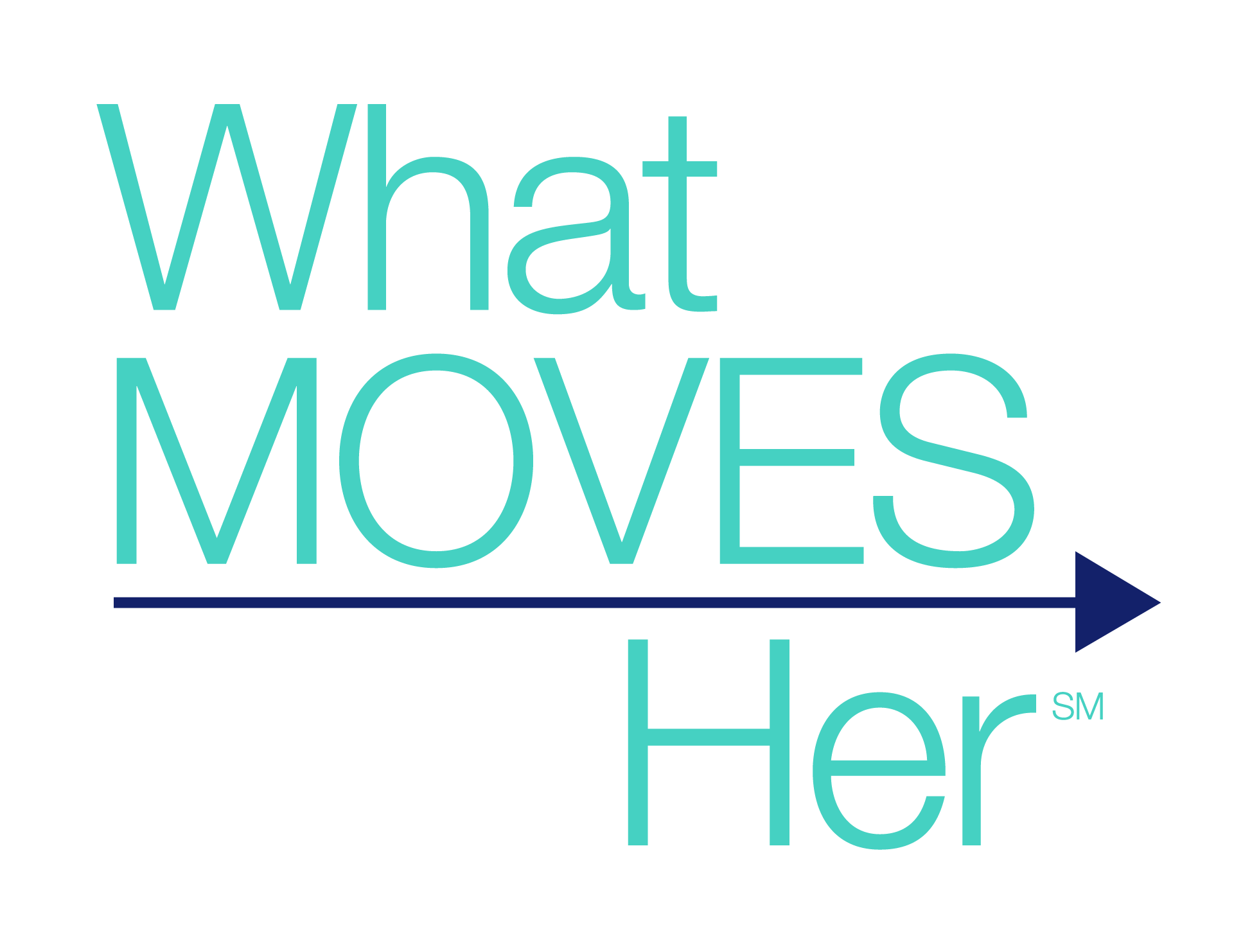Can you believe we’re already at the end of 2021? It seems like yesterday we first launched the What Moves Her campaign and I shared information on The Power of Emotional Intelligence. We’ve come a long way since then, for What Moves Her, in our industry and in daily life. However, in many ways not much has really changed. Even though the real estate market has been seeing record highs, there is still a great amount of uncertainty out there.
Virtual meetings and teleconferencing are still a large part of our workday and I am proud of how our industry quickly adapted to this technology. While many of us have been able to connect at in-person events and conferences, it is far from the pre-pandemic crowds. Which is unfortunate, because meeting and interacting with new people is critically important to our industry, as well as our own well-being.
Despite the adversity we faced in the past year, I am remarkably proud of everything we have accomplished.
If you are even a casual reader of business news, one phrase you’ve probably come across in recent years is grit. Harvard Business Review defines it as “a combination of passion and perseverance” that “predicts success in many demanding fields.” Throughout the past year, I have been amazed (but not surprised) by the grit our community of real estate professionals has shown. Despite a once-in-a-generation pandemic, you have responded with grace, strength…and an amazing amount of grit.
What Moves Her, Going Forward
In 2022, you can count on What Moves Her to continue delivering resources that will help you make the most of your real estate career, accomplish your goals in business and in life, and be a leader in your community. I look forward to helping to grow the What Moves her community, so we can reach out to, connect with, and support more women in our industry.
We still have a lot of work to do, yet the progress we’ve made since we started this community has been thrilling. Now we need to take the momentum and wisdom we’ve gained in the past year and put it to work in 2022. It won’t be easy. But there is nobody I’d want in the conversation more than you.
Let’s start by reviewing some of our most important topics of discussion throughout 2020 and 2021 and how they could impact the future of our industry going forward, starting with one of the most essential topics in our industry…or any other.
What is Emotional Intelligence and Why Do You Need It?
As I have shared, I am a firm believer in the power and importance of EQ, or Emotional Intelligence. I consider it to be one of the most critical skills to develop for anyone in a position of leadership. (By the way, you can see a presentation I gave on the topic here.)
Harvard Business School defines Emotional Intelligence as “the ability to understand and manage your own emotions, as well as recognize and influence the emotions of those around you.”
It can be broken down into four core competencies:
- Self-awareness—The ability to recognize your strengths, weaknesses, emotions, and the effect they have on you and your team’s performance.
- Self-management—The ability to manage your emotions, particularly in stressful situations, and maintain a positive outlook despite setbacks.
- Social awareness—The ability to read a room, recognizing others’ emotions, feelings, and perspectives.
- Relationship management—The ability to influence and mentor others, and resolve conflict
For a real-life example of how EQ can help in business, you don’t have to look any further than what we’re living through right now.
Among other things, 2021 will be remembered as the year of The Great Resignation. As the initial wave of COVID lockdowns subsided, people have been leaving their jobs in search of new, more exciting, and perhaps most importantly, more meaningful work.
The result has been a war for talent in many industries, including ours. Real estate software entrepreneur and industry thought leader Oli Farago wrote about this new phenomenon in Forbes.
“Employers that are facing increased competition in their hunt for talent are also at the mercy of real estate professionals who are being just as selective in their job searches. Having experienced the freedom and flexibility that comes with remote working this past year, top candidates are expecting this hybrid work culture to continue. Tech-forward companies are more likely to have systems in place that allow employees to work remotely.”
What can we learn from this major new development? It’s practically a scientific test case for the power of Emotional Intelligence.
Employees are prioritizing their health and well-being right now. They may not feel ready to go back to the office for 40 hours per week. As a result, business leaders were forced—maybe for the first time in their careers—to adjust to this new development. The ones that showed poor emotional intelligence (i.e. social awareness) remained understaffed and ill-equipped to serve their customers.
But the leaders who were able to show empathy, and see things through their employees’ eyes, were able to manage the transition and emerge maybe even healthier than they were before. Because we have all been going through this together, there was a greater understanding on all levels. We will be coming out of these last few years with a general enhancement of EQ across the board.
Connecting Across Screens
As anyone who has ever sent a misunderstood email or text has learned, digital communication can be fraught with unintended meanings. That’s a big reason why emojis are so popular…an illustration can offer context words alone cannot. Even if we have the best intentions, tone and meaning can so easily be misread in the cold light of a computer screen.
The same goes for teleconferencing calls and video chats. Without body language to help us get our context across, it’s easy to send the wrong message. A simple question can come across as overly aggressive and put people on the defensive. As the New York Times notes, even if a boss talks about a “return to work” (i.e. return to the office) it can be misconstrued. “People are genuinely offended about being told they’re returning to work when they’ve been working their socks off for the past 18 months.”
Communicating clearly from a distance is a skill that needs to be developed. It could use a name, too. Let’s try Digitalk.
Communicating Via Screens
How effective you will be at connecting, communicating, and collaborating at a distance ultimately comes down to your EQ, particularly your level of social awareness and relationship management skill.
Though there are no one-size-fits-all solutions to make you a better virtual team member overnight, there are a few solid rules of thumb that can ensure you don’t start off on the wrong foot.
- Make sure every virtual call has a structure. The Huddle format is a popular choice because it is focused, action-oriented, and rarely longer than 15 minutes. The purpose is to discuss tactical issues and provide status updates.
- Boost engagement with polls, votes, and brainstorming tools. Staring at a screen all day can get more than a little tedious. Fortunately, virtual platforms have features designed to keep people interested. Consider using polls, brainstorming apps and other features to keep everybody focused and participating.
- Evaluate what’s working and what isn’t. Are your meetings too long, or too short? Do you notice more engagement in the morning or afternoon? Keep track of what drives engagement and participation, and get rid of everything that stalls your momentum. Always be reassessing…which leads us to:
What Have We Learned from All of This?
More often than we would care to admit, our success in business hinges on making mistakes, recognizing they are mistakes quickly, and changing course. Adapting to changing circumstances quickly and effectively can often be the difference between success and failure.
In real estate, the pandemic has caused millions of people around the world to reassess their values and what is truly important—how we are living, where we are living, what we value, how we spend our time and money. The ability to work remotely is a true game changer, and is already altering the way we live, and where we live. Not to mention the huge impact it has had on our industry. Proximity to the office isn’t so essential anymore when your office can be anywhere.
The reality is, the pandemic has made it even more important to reassess quickly, and make necessary adjustments. We used to be able to set a strategic plan for the year, and check in to ensure we are meeting our goals and KPIs. But as things are changing ever more swiftly in the market and with customer attitudes and housing trends, we need to check-in and adjust more frequently. Have you reassessed your own plans to adjust for this new variable? Has it helped you reach your goals?
None of us have ever been able to see the future. But trends have remained remarkably consistent over time, which in the past made it easier to model outcomes and forecast likely outcomes. The pandemic has made all that far more difficult. Currently, seasonality has gone out the door—and who knows when it will come back. Which means the ones who will see the most success are the ones who can adapt and flex with the most precision.
Our business plans and strategies must adapt as well. To begin, we can’t have just one. We need to create multiple business plans based on a range of possible contingents.
What if business stays the same? We need to plan for that.
What if it goes down by 10%? We need to plan for that.
What do you have to do to reach your quantifiable goals? What are the variables you’re factoring into your decision making?
Yearly plans simply won’t work in 2022. The people experiencing the most success will set their plans quarterly, which allows for more agility and room to flex under changing circumstances. Plans change fast, and you need to keep pace. Now more than ever, you don’t write your plans then put them in a drawer. A best practice is to keep them by your side at all times—maybe on your phone—so you can quickly adjust as needed.
In Summation
People have taken the time to reassess their lifestyles in a way we haven’t seen before. From my perspective, all this change is what is fueling real estate right now. The pandemic, and the subsequent rise of virtual working, may be the single most fundamental change to the workforce in decades, or longer. We haven’t even begun to figure out its full ripple effect.
But…the ones who figure it out first will be in good shape going forward. In 2022, I challenge each and every one of you to:
- Work on improving your emotional intelligence
- Evaluate your processes, and adjust when needed
- Reassess everything you think about our industry, because it’s changing fast
- Position yourself to reap the benefits of where our world is headed
–Sue
Now It’s Your Turn
Throughout your career, you’ve likely worked with people who demonstrate great emotional intelligence, and probably some who have very little. What did you notice about the people with strong EQ? How can you work to improve yours in 2022?
Let us know. Email us at WhatMovesHer@realogy.com or share with us on Facebook or LinkedIn – we want to hear your thoughts.





Subscribe
JOIN OUR LIST